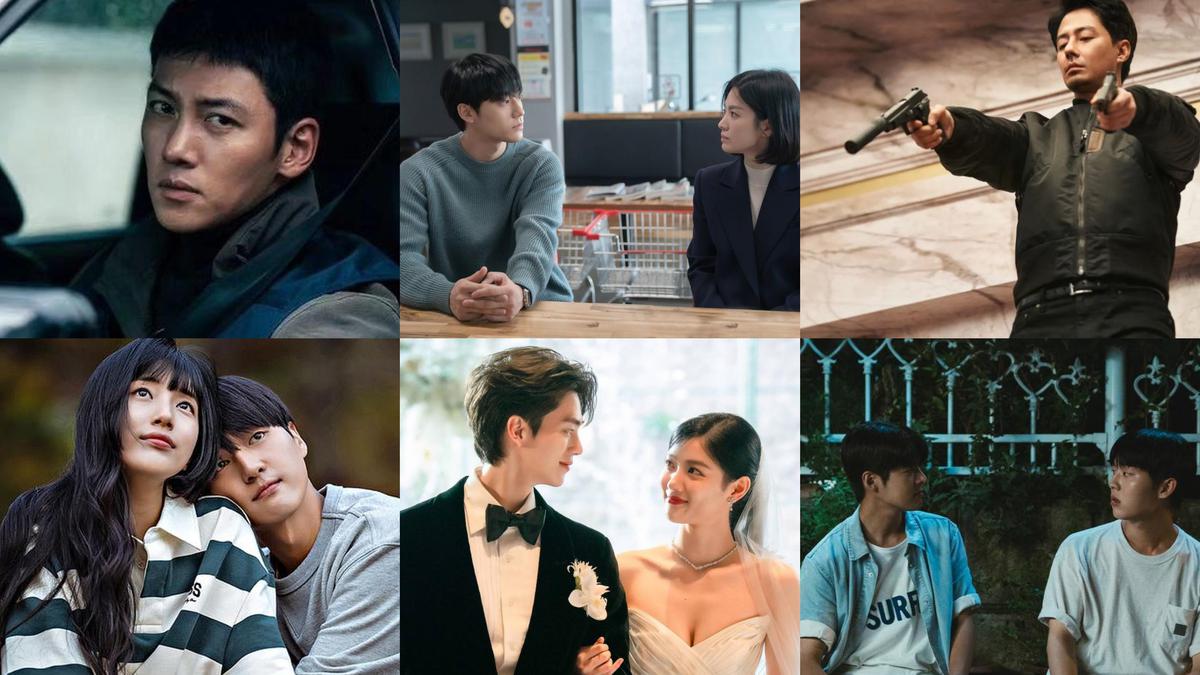
The best of K-dramas in 2023: ‘Moving’, ‘The Glory’ Part 2, ‘Crash Course in Romance’, and more
The Hindu
In a year with a few standout k-drama shows, varied themes ranging from an expansive superhero saga (‘Moving’) to a time-travel coming-of-age tale (‘A Time Called You’) emerged as winners
There was a point in 2022 when every K-drama that dropped seemed to be on a mission to outdo its predecessor. To say that we were spoiled for choice was an understatement. After a year that had Extraordinary Attorney Woo, Little Women, Business Proposal, and Our Beloved Summer, the line up this year had a higher bar to meet.
2023 might not have had as many standout shows as was the case these last two years, but the ones that hit the mark redefined genres. On the other end of the spectrum were a large number of highly anticipated K-dramas that began with much promise only to be terribly let down by shockingly inept writing and a mish-mash of themes that seemed to lead nowhere.
Early in the year, we got the second part of The Glory, a worthy follow-up to the first part that was released in 2022. As Moon Dong-eun, Song Hye-kyo once again delivered a restrained, career-best performance, seeking retribution for the brutal bullying she underwent as a high schooler. This was one of the rare shows where the second part managed to hold onto much of the sharp writing, pacing, and performances from its first instalment. Bullying in schools — a problem South Korea grapples with — has always been dealt with in an offhand, almost callous way in most other shows where it features as a neglected plot point. Often graphic and disturbing, The Glory attempts to deconstruct the economic disparity, power, privilege, and a system that works against victims like Dong-eun, who is told from the start that things like poetic justice and karma don’t exist in her world.
As a debate between the two big superhero universes in Hollywood, their relevance, and the declining quality of content being churned out rages on, Moving, a stunningly original and expansive superhero saga came forth with its compelling writing and excellent ensemble cast. Anything but a simple tale of good triumphing over evil, Moving’s strengths lay in its carefully conceived characters — their stories, relationships, and how they bear the weight of a system that is determined to exploit as well as ostracise them. For a show that is heavy on action and violence, Doo-sik (Jo In-sung) and Mi-hyun’s (Han Hyo-joo) blossoming romance, and Bong-seok (Lee Jung-ha) and Hui-soo’s (Go Yoon-jung) coming-of-age arc as they grapple with their superpowers make for some of the best moments of the show.
Ji Chang-wook’s middling script choices have for a while now agonised his legion of fans, and the talented actor seemed to have made a conscious choice this year to pick scripts worthy of his acting capabilities. In The Worst of Evil, Chang-wook essayed an undercover investigator who infiltrates a drug cartel and lent nuance to an already complex character struggling under the weight of his decisions and the effect it has on his loved ones.
A much favoured (often excessively so) genre, there was no dearth of historical dramas (or Sageuks as they are known) and leading the charge this year was the affecting period romance My Dearest, which had extraordinary performances by its leads — the prolific Namkoong Min and Ahn Eun-jin. Set against the backdrop of the Qing invasion of the Joseon, the series chronicles the relationship between a noblewoman and a warrior, amidst the ongoing political unrest. While Ji-eun also shone in yet another lead role as Mi-joo in TheGood Bad Mother, the show ultimately belonged to the mother and son duo — with masterful portrayals by Ra Mi-ran and Lee Do-hyun. It seems like Do-hyun can do no wrong when it comes to his script choices; the actor has consistently chosen varied performances and as Kang-ho in The Good Bad Mother, he slipped with ease and conviction into the role of a no-nonsense prosecutor who later goes back to being his childhood self after losing his memory in an accident.
On the lighter ground, 2023 was the year of the ‘romantasy’. There was A Time Called You, the much-hyped remake of the Taiwanese show Someday or One Day. While K-dramas seem to have fully embraced the idea of throwing in a serial killer for a secondary plot, often to less than satisfactory results, A Time Called You was an exception that greatly benefitted from its thriller and time travel narratives. Actors Shin Hye-sun and Ahn Bo-hyun were the best part of the visually stunning See You In My 19th Life, which meandered towards closure for its leads who were torn apart by fate across different lives. While the role was a cakewalk for Hye-sun after Mr Queen, Bo-hyun’s quiet and vulnerable portrayal of Seo-ha was a true surprise, given his affinity for roles in thrillers and action dramas.

 Run 3 Space | Play Space Running Game
Run 3 Space | Play Space Running Game Traffic Jam 3D | Online Racing Game
Traffic Jam 3D | Online Racing Game Duck Hunt | Play Old Classic Game
Duck Hunt | Play Old Classic Game











